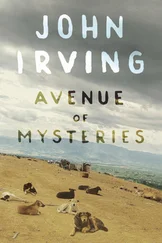Once a month, on a Saturday, he and Joni went to dinner in the refurbished farmhouse on the edge of the campus, a completely renovated white-stuccoed residence so utterly desirable that passersby slid “if-you-ever-decide-to-sell” notes through the mail slot in the dark-green front door. Although he teased Joni about her clingy attachment to her parents (“Now don’t just call Daddy,” he said when a blown fuse suddenly left her student flat pitch-black and deserted), he always enjoyed those visits. As they cycled out to the farmhouse, downtown Enschede would melt into the Drienerlo woods, which in turn flowed seamlessly into the campus, the backdrop for their four-year relationship. On those Saturdays, Tubantia seemed heavily pregnant. The humming meadows looked grassier than on weekdays, in his memory the wooded paths rolled gently, they cycled through an undulating landscape that smelled of pollen and where the ponds seemed inevitable. The shimmering water had collected at the lowest parts, just as hundreds of scholars and thousands of students had flowed precisely here in order to shine. You could hear their brains rustling, the fields and the trees and the berm seemed statically charged by the billions of bits and bytes that zoomed through the campus network under their feet. And when they returned home late in the evening, a prehistoric darkness enveloped the route, the gentle hills had become shallow dells, the greens and woods lairs for slumbering academic buildings. Applied Mathematics lay like a brontosaurus in its lake, the Tyrannosaurus rex of Technical Physics stretched up to the highest treetops, its slumbering head among the stipple of stars.
Sometimes they’d spend the night, and the next morning they would eat warm croissants with marmalade and drink jumbo glasses of fresh orange juice Sigerius squeezed for them after doing his forty laps of breast stroke in the campus pool, with the music of the Bill Evans Trio, the Modern Jazz Quartet, Dave Brubeck in the background, easy-listening Sunday morning jazz, which, he said, worked like salve on their morning moodiness. “Can you turn the salve down a little?” Joni complained, but Sigerius ignored her. With a raised index finger and one eye shut, he would call out: “Listen!” His wife and two daughters fell silent, dutifully stopped chewing and concentrated, just to indulge him in something that bored them, and after about ten seconds Sigerius released them with words like: “Beautiful, how Scott LaFaro plays around Evans. Hear that? Around him. Yeah, now! , this, that meandering bass, listen.”
“Dad, I hate jazz,” said Janis, or Joni, or both.
“Just listen to this, it’s unreal! It’s foreground and background at the same time, accompanist and virtuoso. No way am I turning this down.”
At moments like this, Aaron was the one — and this was the basis for their bond, the simple fact that he was a boy, and not a girl, although there are also certain breeds of boy that get the creeps from jazz, for whom jazz is a complete waste of time — who remarked how tragic it was that Scott LaFaro smashed himself up in a car crash, and that Bill Evans, after that dramatic loss in 1961, never found another bassist of that caliber, although Chuck Israels of course did come close, certainly on How My Heart Sings! And before he’d finished with his little spiel, another heart sang: that of his father-in-law, who divided the world into jazz lovers and ignoramuses, and who had often announced, even in company, that he’d never met a young person so clued-up about jazz as Aaron, a feather in his cap that he not only left there but also, now and then, when no one was looking, stroked.
The Saturday evenings usually began in the sunroom, which was then spanking-new and, since the wall was taken out a year earlier, ran directly into the kitchen with its cooking island where Tineke prepared simple but tasty meals. After supper they retired, arguing or joking, to the old living room, and Tineke followed, carrying a tray of buttered krentenwegge and jittering coffee cups, and Joni opened the cabinet doors concealing the so-called unimportant television, and Sigerius kept up his end of the bargain by not answering his cell phone for an hour. The times when Janis went off to meet friends at a café downtown (usually right after Frasier , watching the end with her coat already on) and Tineke and Joni decided at around ten to watch a Saturday evening film, and Sigerius would ask: “How ’bout some tunes?” and he would not say no but yes, and they would disappear like a pair of schoolboys with a bottle of whiskey to the “music room,” a space on the ground floor fitted out with two dark-red Chesterfields, an expensive NAD amplifier and CD player, a Thorens turntable, and two man-sized B&W speakers on spikes and bits of NASA foam rubber that Sigerius had wangled from Technical Physics; and there, seated among framed photos of Bud Powell and Thelonious Monk and Bill Evans, they listened to democratically chosen records (with bilateral veto power), original American LPs that Sigerius kept in tall, narrow, waxed beechwood cabinets designed and built by his wife.
Boys’ stuff, just like that judo of theirs. In the farmhouse entrance hung a blown-up photo of five hulking, bare-chested men dragging a tree trunk up a hill: Geesink, Ruska, Gouweleeuw, and Snijders, and there, second from the left, with the tensed pecs and cropped dark curls above the flat face, was Sigerius himself. The Dutch national judo team in training for a World Championship, it must have been ’65 or ’66. Geesink, coach as well as teammate, sent his line-up into the woods near Marseilles; according to Sigerius he was a slave driver, but when tree trunks had to be dragged uphill, he was out in front. Up on top, while the others lay gasping for breath, Geesink grabbed the trunk at one end and, palpitating, shoved it out in front of him ten or so times, tore the clothes off his steaming body and jumped in a mountain creek. “If we offered him a water bottle, he refused, thought it was a waste of his thirst,” said Sigerius, who soon discovered that Aaron had practiced judo until he was nineteen; and when he learned that he was even a black belt, Sigerius coaxed him into taking it up again, first in the senior group he coached on Thursday evenings at the campus athletic center, and when Aaron had regained, as they say, his old “feeling,” Sigerius asked if he felt like going for a dan exam together.
Judo is a strangely intimate sport. A couple of times a week for a good two years, he and Sigerius rolled around the judo mat in each other’s arms. Intensive, concentrated hours with the gym entirely to themselves. Talk was kept to a bare minimum. They gave themselves one year to hone their throwing and grappling techniques, Sigerius going for his fourth dan, he for his second. Each training session closed with the savage bouts he often thought back on, even now. And after each session he climbed into bed, occasionally in her parents’ guest room, next to Joni, Sigerius’s painstakingly raised daughter, the apple of his eye, and then Aaron noticed that Joni smelled vaguely like her father — maybe it was the washing powder Tineke used, he couldn’t say. And while he mixed pheromones — he was a messenger of bodily scents, a bumblebee that traveled between two bodies of the same make — he felt that his strange happiness was doubled in their careful lovemaking after the training sessions, their muted groans in Sigerius’s guest bed, his hand sometimes firmly over Joni’s warm mouth to keep her from waking his strange friend a floor below.
The train rolled through Leuven. Tineke had closed her eyes, she pretended to sleep so that they would not have to acknowledge each other’s existence. He admired her cold-bloodedness. He hadn’t seen a single Sigerius since late in 2000, the year everything was blown to pieces. Nevertheless they roamed stubbornly through his subconscious, he still had recurring dreams — nightmares mostly — of Enschede.
Читать дальше












